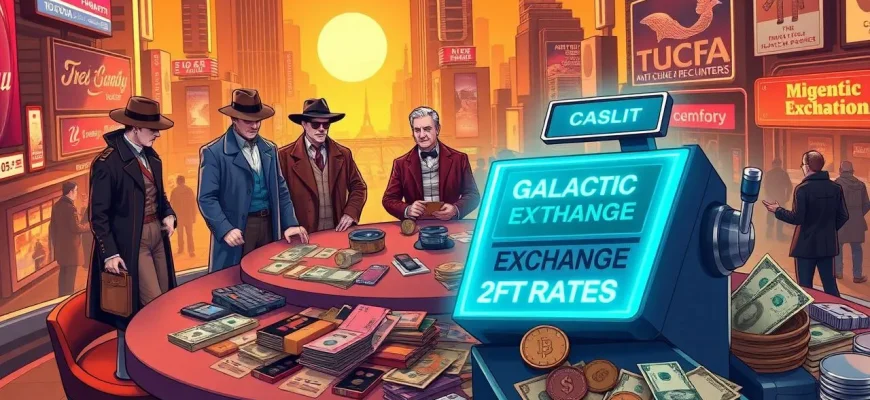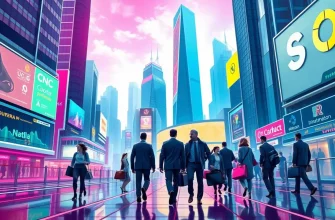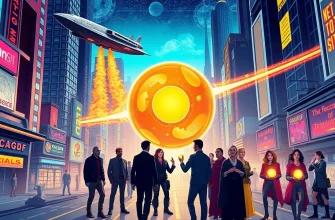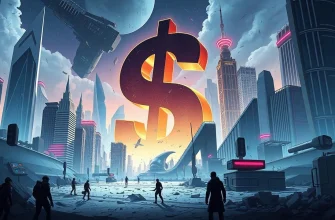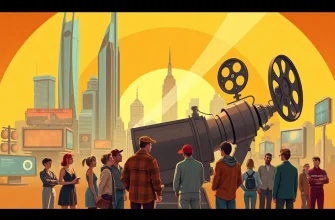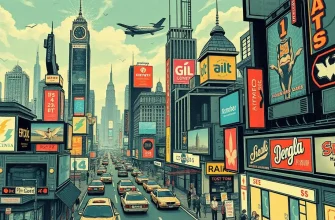Money has always been a driving force in human society, and when you mix it with the boundless imagination of science fiction, you get a cocktail of intrigue, innovation, and often, a bit of dystopia. This collection of films delves into how money shapes the future, exploring themes of wealth, power, and the societal structures that arise from economic disparity. Whether it's through digital currencies, interstellar trade, or the commodification of time itself, these films offer a fascinating look at what might happen when money meets the future.
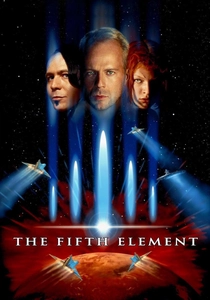
The Fifth Element (1997)
Description: While primarily an action-adventure, the film features a futuristic economy where money is often secondary to barter and trade, showcasing a different approach to wealth in a sci-fi setting.
Fact: The film was a major influence on the visual style of many subsequent sci-fi films.
 Watch Now
Watch Now

Gattaca (1997)
Description: In a society where genetic engineering determines one's social status, the film delves into the economic and social implications of genetic discrimination.
Fact: The film's title is derived from the four nitrogenous bases of DNA: guanine, adenine, thymine, and cytosine.
 Watch Now
Watch Now

The Matrix (1999)
Description: While not explicitly about money, the film's exploration of a virtual reality where humans are unknowingly enslaved to produce energy for machines touches on themes of economic exploitation and control.
Fact: The Wachowskis developed the concept for The Matrix over several years, drawing from various philosophical and cyberpunk influences.
 Watch Now
Watch Now

The Island (2005)
Description: This film explores a world where clones are created for organ harvesting, essentially commodifying human life for the benefit of the wealthy, touching on themes of economic exploitation.
Fact: Michael Bay directed this film, known for his high-concept action movies.
 Watch Now
Watch Now
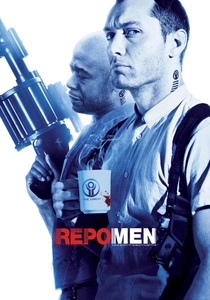
Repo Men (2010)
Description: In a future where artificial organs are sold on credit, repo men repossess organs from those who can't pay, highlighting the commodification of human life and the harsh realities of debt.
Fact: The film was based on the novel "The Repossession Mambo" by Eric Garcia.
 Watch Now
Watch Now

Elysium (2013)
Description: Set in a future where the wealthy live on a luxurious space station, Elysium, while the rest of humanity struggles on an overpopulated Earth, this film examines the stark divide between the haves and have-nots.
Fact: The film's director, Neill Blomkamp, is known for his socially conscious sci-fi films, often set in dystopian futures.
 Watch Now
Watch Now

In Time (2011)
Description: In a world where time is literally money, people must work to earn more time to live, making the rich immortal and the poor desperate. This film explores the extreme consequences of economic disparity.
Fact: The film's concept was inspired by the idea of time as a currency, a theme that has been explored in various forms of literature and media.
 Watch Now
Watch Now
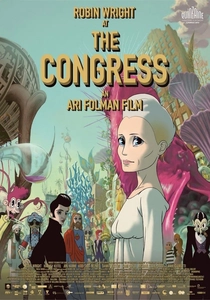
The Congress (2013)
Description: An actress sells her image to a studio, which then uses it in any film they wish, exploring themes of identity, ownership, and the commodification of self in a digital age.
Fact: The film is based on the novel "The Futurological Congress" by Stanisław Lem.
 Watch Now
Watch Now
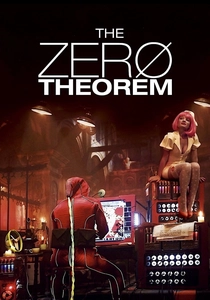
The Zero Theorem (2013)
Description: In a world where corporations control everything, a reclusive computer genius works on a formula to prove the meaninglessness of existence, touching on themes of economic control and existentialism.
Fact: Directed by Terry Gilliam, this film continues his exploration of dystopian futures and the human condition.
 Watch Now
Watch Now

Brazil (1985)
Description: This dark comedy explores a dystopian future where bureaucracy and consumerism run rampant, with money and power deeply intertwined.
Fact: Terry Gilliam's vision for the film was so unique that it clashed with the studio's expectations, leading to multiple edits and versions.
 30 Days Free
30 Days Free

